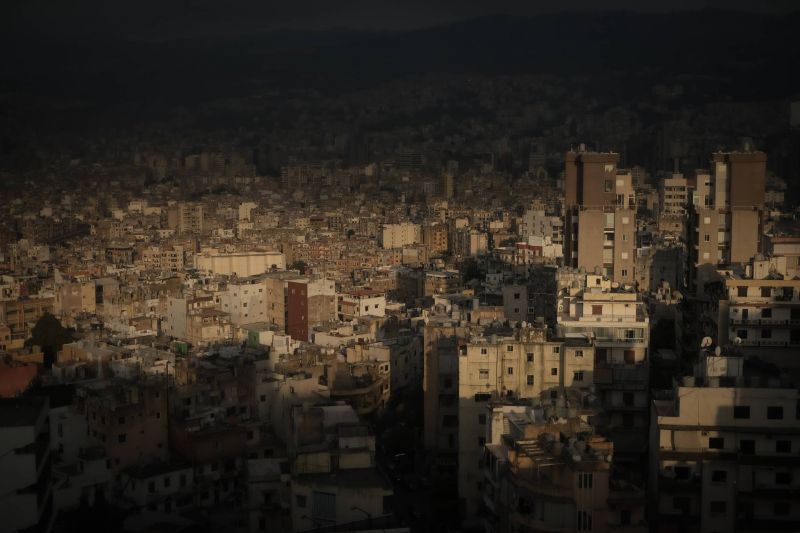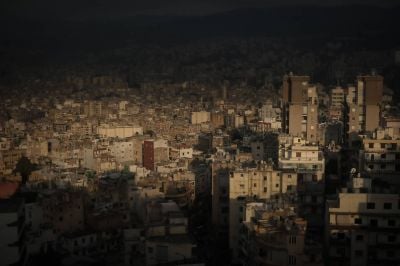
The number of passengers at Beirut Airport recorded a 23.2% increase in the first half of 2023. (Credit: João Sousa/L'Orient Today)
While it is still early to talk about an end to Lebanon’s economic crisis, Bank Audi’s latest quarterly report pointed to improvement in certain economic indicators that — in the medium and long term — could lead to a recovery in economic activity.
In late June, the International Monetary Fund (IMF) estimated that delays in implementing reforms set out in the 2022 Staff-Level Agreement (SLA) between the IMF and the Lebanese authorities have cost depositors an additional $10 billion.
Bank Audi’s latest report “describes well the crisis and its outcomes, while fairly outlining the responsibilities and challenges,” and clearly sets out its “recommendations for fiscal policy, monetary policy and banking reforms” to help the country find a way out of the crisis.
Positive indicators
The Bank Audi report noted an upturn in private consumption in the first six months of the year, driven by the tourism sector and the expatriates who spent their holidays in Lebanon. Passenger numbers at Beirut Airport rose by 23.2 percent in the first half of the year, with 3,160,979 passengers in June 2023 compared to 2,566,113 passengers in the same period last year.
In addition, the report pointed to an improvement in the balance of payments — the difference between the flows of real, financial and monetary assets between residents and non-residents — during the first five months of 2023.
After recording a deficit of $3.2 billion in 2022, there was a $1.2 billion surplus by May 2023.
This situation is due to a $0.8 billion contraction in Banque du Liban’s net foreign assets, while the net foreign assets of commercial banks increased by $2 billion, the report said.
According to the report, the decline in BDL’s foreign exchange reserves during this period was largely due to the intervention of its Sayrafa platform, through which BDL injected dollars into the market. This helped curb the rapid collapse of the national currency on the parallel market, while stabilizing the exchange rate.
The banking sector
The report also looks back at the dizzying fall in bank deposits since the start of the economic crisis.
Deposits fell from $168.4 billion at the end of October 2019 to $97.3 billion by May 2023— a 42 percent drop.
Broken down, foreign currency deposits fell by $30.4, reaching $93.5 billion, while lira deposits fell by $5.7 trillion, reaching $61.7 trillion in May 2023. The bank’s research department noted that the dollarization of deposits rose by 73.4 percent from October 2019 to 95.8 percent in May 2023.
Loans fell by 82.5 percent during this period, reaching $9.5 billion in May. Equity capital, meanwhile, contracted from $20.6 billion at the end of October 2019 to $5.2 billion at the end of May 2023, due to banks’ net losses.
This loss of confidence in the banking sector is also reflected in the scale of the cash economy.
The World Bank recently estimated Lebanon’s cash economy at $9.9 billion in 2022, or 46 percent of the GDP, compared with $4.5 billion in 2020 and $6 billion in 2021.
But this growth is taking place at the expense of banking and financial intermediation, which is itself necessary for the country’s production growth, said the Bank Audi report.
“When the cash economy develops, so does the informal economy with all its attendant disadvantages, from money laundering to tax evasion,” read the report. This in turn weakens the monetary policy’s effectiveness and the state’s ability to achieve its budgetary objectives.
“It is urgent to adopt a comprehensive economic and financial rescue plan” that is capable of “re-establishing the role of the financial sector as the main financial intermediary in the country,” the report concluded.
This article was originally published in French in L'Orient-Le Jour. Translation by Joelle El Khoury.
